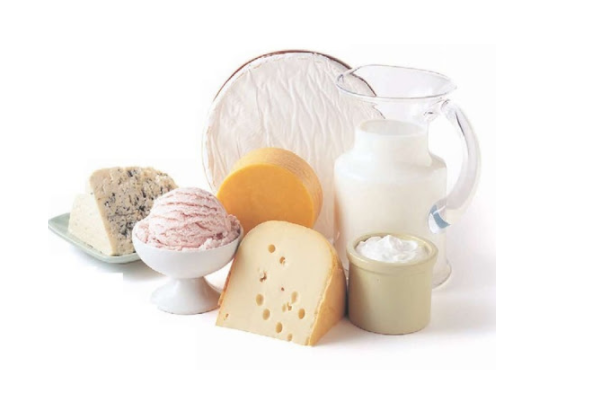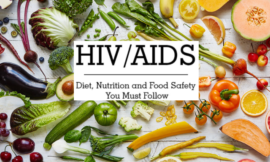Milk is a good source of many essential nutrients, including calcium, protein, and vitamin D. Many people see it as a vital part of a balanced diet and dairy products are controversial these days. While dairy is cherished by health organizations as essential for your bones, some people argue that it’s harmful and should be avoided.
But every dairy products are the same. They vary greatly in quality and health effects depending on how the milk-giving animals were raised and how the dairy was processed. Pasteurized milk that is high in protein, low in fat, and free from unnecessary additives can be healthful for many people.
Here are some good health benefits of milk and dairy products and some risk of consuming diary products.
Rich in Nutrients
The nutritional breakdown of milk depends on the fat content and whether or not the manufacturer has enriched it.
A single cup (237 ml) of milk contains:
- Calcium: 276 mg — 28% of the RDI
- Vitamin D: 24% of the RDI
- Riboflavin (vitamin B2): 26% of the RDI
- Vitamin B12: 18% of the RDI
- Potassium: 10% of the RDI
- Phosphorus: 22% of the RDI
It also boasts decent amounts of vitamin A, vitamins B1 and B6, selenium, zinc and magnesium, alongside 146 calories, 8 grams of fat, 8 grams of protein and 13 grams of carbs.
Calorie for calorie, whole milk is quite healthy. It offers a little bit of almost everything your body needs.
Calcium
Calcium has many functions in the body, including:
- Developing and maintaining healthy bones and teeth
- Helping with blood clotting and wound healing
- Maintaining normal blood pressure
- Controlling muscle contractions, including the heartbeat.
It may also help reduce the risk of some types of cancer, vitamin D helps the body absorb calcium more effectively. Therefore, pairing calcium-rich foods with a source of vitamin D can increase levels of both nutrients.
Most evidence indicates that dairy improves bone density, reduces osteoporosis and lowers older adults’ risk of fractures.
Choline
Choline is an important nutrient that helps with muscle movement, mood, and memory.
Low levels of choline can lead to:
- muscle damage
- liver damage
- nonalcoholic fatty liver disease
The body can make most of the choline it needs, but some must come from dietary sources, such as milk, yogurt, and cottage cheese.
Potassium
Potassium can help reduce the risk of:
- stroke
- heart disease
- high blood pressure
- loss of muscle mass
- loss of bone mineral density
- kidney stones.
Vitamin D
Vitamin D is important for the formation, growth, and repair of bones. It also plays a key role in calcium absorption and immune function.
Low vitamin D levels may increase the risk of osteoporosis (brittle bones), osteomalacia, and rickets. Vitamin D is also associated with boosting the immune system, improving heart health, and protecting against cancer. The best source of vitamin D is sun exposure. Very little vitamin D occurs naturally in foods. However, some manufacturers fortify certain foods, such as milk products, with vitamin D.
Supports Your Bones
Calcium is the main mineral in your bones — and dairy is the best source of calcium in the human diet. Therefore, dairy has many benefits for bone health. You can consuming 2–3 servings of dairy per day in order to get enough calcium for your bones. Most evidence indicates that dairy improves bone density, reduces osteoporosis and lowers older adults’ risk of fractures. Additionally, dairy provides more than just calcium. Its bone-boosting nutrients include protein, phosphorus and — in the case of grass-fed, full-fat dairy — vitamin K2.
Brain health
Some researchers have found that older adults who consume more dairy products have a higher amount of glutathione, a powerful antioxidant, in the brain.
Those who consumed three daily servings of milk and milk products had antioxidant levels that were approximately 30% higher than those of adults who had less than half a serving per day.
Lower Risk of Obesity and Type 2 Diabetes
Full-fat dairy has some benefits for metabolic health. Despite being high in calories, full-fat dairy is linked to a reduced risk of obesity. Studies found that full-fat dairy to reduced obesity — but none identified such an effect for low-fat dairy. There is also some evidence that dairy fat can reduce your risk of diabetes.
Consuming full-fat dairy may help to less belly fat, less inflammation, lower triglycerides, improved insulin sensitivity and a 62% lower risk of type 2 diabetes.
Risks

Some people choose not to consume dairy products such as milk. These people may:
- Choose to follow a specific diet, such as vegan or paleo
- Hope to reduce acne or other conditions
- Have an allergy or sensitivity to lactose (the milk sugar) or casein (the milk protein)
- Have concerns about methods of dairy farming and their impact on the environment
- Have concerns about the possibility that milk contains hormones, such as estrogen.
Some argue that humans are the only species who continue to drink milk after being weaned, implying that milk consumption is unnatural and unnecessary.
Hormones in milk
Some people worry that the hormones in dairy milk, including estrogen and growth hormones, can adversely affect them. Researchers found that mice who consumed high concentrations of estrogen in milk underwent hormonal changes. However, they note that the levels of estrogen were far higher than those that usually occur in cow’s milk.
Scientists have not yet found evidence to suggest that the hormones in dairy milk can affect humans negatively.
Cancer
Some evidence suggests that a high intake of milk may increase the risk of ovarian cancer. The reasons for this remain unclear, however, People who do not wish to consume milk can choose from a range of dairy alternatives.
Lactose Intolerant
The main carbohydrate in dairy is lactose, a milk sugar composed of the two simple sugars glucose and galactose.
As an infant, your body produced a digestive enzyme called lactase, which broke down lactose from your mother’s milk. However, many people lose the ability to break down lactose in adulthood. In fact, about 75% of the world’s adult population is unable to break down lactose — a phenomenon called lactose intolerance.
People who are lactose intolerant have digestive symptoms when they consume dairy products. This includes nausea, vomiting, diarrhea and related symptoms.
Milk allergy
A milk allergy is different from lactose intolerance. If a person with a milk allergy drinks milk, they will have an abnormal immunologic reaction, in which the body’s immune system produces allergic antibodies such as immunoglobulin E.
For these people, drinking milk can lead to:
- vomiting
- diarrhea
- hives
- blood in the stool
A severe allergic reaction can trigger sudden anaphylactic shock, which can be fatal. If a person starts to experience swelling or difficulty breathing after coming into contact with or consuming milk, they need urgent medical attention.





